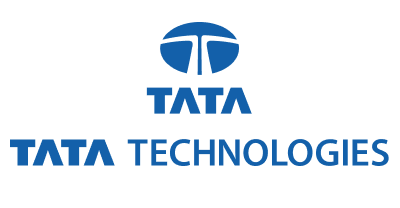As artificial intelligence (AI) continues to revolutionize industries across the board, many organizations are building dedicated AI-focused engineering teams. However, supporting these teams requires a unique set of resources, infrastructure, and cultural elements. In this blog post, we’ll explore what’s necessary to effectively support an AI-focused engineering team and set them up for success.
1. Robust Data Infrastructure
At the heart of any AI initiative is data. AI-focused engineering teams require access to high-quality, diverse, and well-organized data sets to train and test their models.
Key Requirements:
– Scalable data storage solutions (e.g., data lakes, cloud storage)
– Data pipelines for efficient data ingestion and processing
– Data governance frameworks to ensure data quality and compliance
– Tools for data labeling and annotation
Implementation Tip:
Invest in building a centralized data platform that can handle the volume, variety, and velocity of data required for AI projects. Consider using cloud-based solutions for scalability and flexibility.
2. High-Performance Computing Resources
AI workloads, particularly those involving deep learning, require significant computational power.
Key Requirements:
– GPU clusters for training large models
– Cloud computing resources for scalability
– Distributed computing frameworks
– Specialized AI hardware accelerators (e.g., TPUs, FPGAs)
Implementation Tip:
Consider a hybrid approach, combining on-premises GPU clusters with cloud resources to balance performance, cost, and flexibility.
3. AI Development Platforms and Tools
AI engineers need a comprehensive set of tools and platforms to efficiently develop, test, and deploy AI models.
Key Requirements:
– Machine learning frameworks (e.g., TensorFlow, PyTorch)
– Integrated Development Environments (IDEs) with AI-specific features
– Model versioning and experiment tracking tools
– AutoML platforms for rapid prototyping
– Model serving and deployment platforms
Implementation Tip:
Standardize on a core set of tools while allowing flexibility for teams to use specialized tools when needed. Ensure proper integration between different tools in the AI development pipeline.
4. Robust MLOps Infrastructure
MLOps (Machine Learning Operations) practices are crucial for managing the lifecycle of AI models from development to production.
Key Requirements:
– Automated CI/CD pipelines for AI models
– Model monitoring and performance tracking tools
– Model governance and versioning systems
– A/B testing frameworks for model deployment
– Explainable AI (XAI) tools for model interpretability
Implementation Tip:
Implement MLOps practices gradually, starting with basic model versioning and automated testing, then progressing to more advanced practices like automated retraining and deployment.
5. Collaborative Environment
AI development often requires close collaboration between data scientists, ML engineers, domain experts, and other stakeholders.
Key Requirements:
– Collaborative coding platforms (e.g., Jupyter Notebooks)
– Knowledge sharing platforms (e.g., internal wikis, documentation systems)
– Project management tools tailored for AI projects
– Regular cross-functional meetings and workshops
Implementation Tip:
Foster a culture of open communication and knowledge sharing. Consider implementing “AI office hours” where team members can seek help or share insights.
6. Ethical AI Framework
As AI systems become more prevalent, ensuring they are developed and used ethically is crucial.
Key Requirements:
– Clear ethical guidelines for AI development
– Tools for bias detection and mitigation in AI models
– Privacy-preserving AI techniques
– Regular ethical reviews of AI projects
Implementation Tip:
Develop an ethical AI checklist that teams must complete at various stages of the AI development lifecycle. Conduct regular training sessions on AI ethics and responsible AI practices.
7. Continuous Learning and Skill Development
The field of AI is rapidly evolving, requiring continuous learning and skill development.
Key Requirements:
– Access to online learning platforms and courses
– Budget for attending AI conferences and workshops
– Internal knowledge sharing sessions and tech talks
– Partnerships with academic institutions or AI research labs
Implementation Tip:
Implement a “learning budget” for each team member, allowing them to choose learning resources that best fit their needs. Encourage team members to share their learnings with the wider team.
8. Specialized Talent Acquisition and Retention Strategies
AI talent is in high demand, requiring specialized strategies for attracting and retaining top talent.
Key Requirements:
– Competitive compensation packages
– Challenging and impactful AI projects
– Opportunities for research and publication
– Clear career progression paths for AI specialists
Implementation Tip:
Develop partnerships with universities to access fresh AI talent. Consider offering internship programs specifically for AI roles.
9. Cross-Functional Integration
AI projects often require integration with various business units and technical teams.
Key Requirements:
– Clear processes for engaging with business stakeholders
– Integration points with data engineering and software development teams
– Collaboration frameworks with legal and compliance teams
– Engagement models with IT operations for model deployment
Implementation Tip:
Assign “AI ambassadors” to different business units to facilitate communication and identify potential AI use cases.
10. Robust Security Measures
AI systems often deal with sensitive data and can be targets for attacks, requiring strong security measures.
Key Requirements:
– Secure environments for model training and deployment
– Data encryption and access control mechanisms
– AI-specific security tools (e.g., adversarial attack detection)
– Regular security audits of AI systems
Implementation Tip:
Involve security teams early in the AI development process. Implement “security by design” principles in your AI development lifecycle.
Challenges and Considerations
Supporting an AI-focused engineering team comes with its unique set of challenges:
1. Cost Management: AI infrastructure and talent can be expensive. Implement robust cost monitoring and optimization strategies.
2. Balancing Research and Production: Find the right balance between exploratory AI research and delivering production-ready AI systems.
3. Explaining AI to Stakeholders: Develop strategies to effectively communicate AI concepts and results to non-technical stakeholders.
4. Handling AI Project Failures: AI projects can have high failure rates. Foster a culture that learns from failures and iterates quickly.
5. Keeping Pace with AI Advancements: The AI field evolves rapidly. Develop strategies to stay updated with the latest advancements and assess their relevance to your organization.
Conclusion
Supporting an AI-focused engineering team requires a multifaceted approach that goes beyond just providing technical resources. It involves creating an ecosystem that fosters innovation, ensures ethical practices, and enables the team to deliver impactful AI solutions.
Key to success is the ability to balance structure and flexibility. While standardized tools and processes are important for efficiency and governance, AI teams also need the freedom to experiment and innovate.
Moreover, supporting an AI team is an ongoing process. As AI technologies and methodologies evolve, so too must the support structures around them. Regular assessment and adaptation of your support strategies are crucial to ensure they continue to meet the needs of your AI team.
By providing the right infrastructure, tools, cultural elements, and support structures, organizations can empower their AI-focused engineering teams to push the boundaries of what’s possible with AI, driving innovation and creating significant business value.
Remember, the goal is not just to have an AI team, but to create an environment where AI can thrive and deliver transformative results for your organization. With the right support, your AI-focused engineering team can turn the promise of AI into reality.











